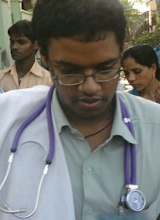It's never too late for smokers to do their hearts good by kicking the habit -- even after a heart attack has left them with significant damage to the organ's main pumping chamber, a new study suggests.
Past studies have found that smokers who kick the habit after suffering a heart attack have a lower rate of repeat heart attacks and live longer than their counterparts who continue to smoke.
But little has been known about the benefits of quitting among heart attack patients left with a complication called left ventricular (LV) dysfunction -- where damage to the heart's main pumping chamber significantly reduces its blood-pumping efficiency.
So it has been unclear whether that dysfunction might "drown out" the heart benefits of smoking cessation, said Dr. Amil M. Shah, the lead researcher on the new study and a staff cardiologist at Brigham and Women's Hospital in Boston.
But in their study, Shah and his colleagues found that heart attack survivors with LV dysfunction may stand to benefit as much from smoking cessation as other heart attack patients do.
The researchers found that among 2,231 patients with LV dysfunction, those who quit smoking within six months of their heart attack were less likely to die within five years or suffer a repeat attack than smokers who continued the habit.
Of all patients, 463 were smokers at the time of the heart attack but had quit six months later; 268 were still smoking at the six-month mark. Among quitters, 15 percent died or suffered another heart attack by the end of the study, which followed the patients for up to five years.
That compared with a rate of 23 percent among patients who were still smoking six months after their initial heart attack.
When Shah's team accounted for a number of other factors -- including age, medical history and body weight -- smoking cessation itself was linked to a 40 percent reduction in the risk of death compared with persistent smoking.
Quitters were about 30 percent less likely to die, suffer a repeat heart attack or be hospitalized for heart failure during the study period.
"The findings aren't completely surprising," Shah told Reuters Health. But, he said, they offer reassurance to patients with LV dysfunction that they can benefit from smoking cessation -- and the magnitude of that benefit is similar to what has been seen among heart attack survivors without LV dysfunction.
"I've had patients who say, 'What's the point of quitting now?'" Shah noted. "But it's never too late to benefit from smoking cessation."
Some studies have found that smoking-cessation counseling begun in the hospital, and continued after discharge, may be particularly effective for heart attack patients.
Patients at hospitals that do not offer such counseling should speak with their cardiologist or primary care doctor about smoking cessation, Shah advised. Behavioral counseling will generally be the first step, he noted -- though for patients who ultimately need more, nicotine-replacement products or medications such as Zyban or Chantix may be options.
A number of studies have suggested that these products are generally safe for people with heart disease -- though, Shah pointed out, most of the data come from patients with stable heart disease, and not those who have just recently suffered a heart attack or other complication.
SOURCE: http://link.reuters.com/dew47n American Journal of Cardiology, published online August 13, 2010. (Reuters Health)
WELCOME TO THE NEW RANGARAYAN BLOG
PLEASE FEEL FREE TO GIVE IN YOUR VIEWS AND COMMENTS
NEW ANNOUNCEMENT
SPREE 2012 UPDATES- CLICK HERE
welcoming the new a...

0 comments:
Post a Comment